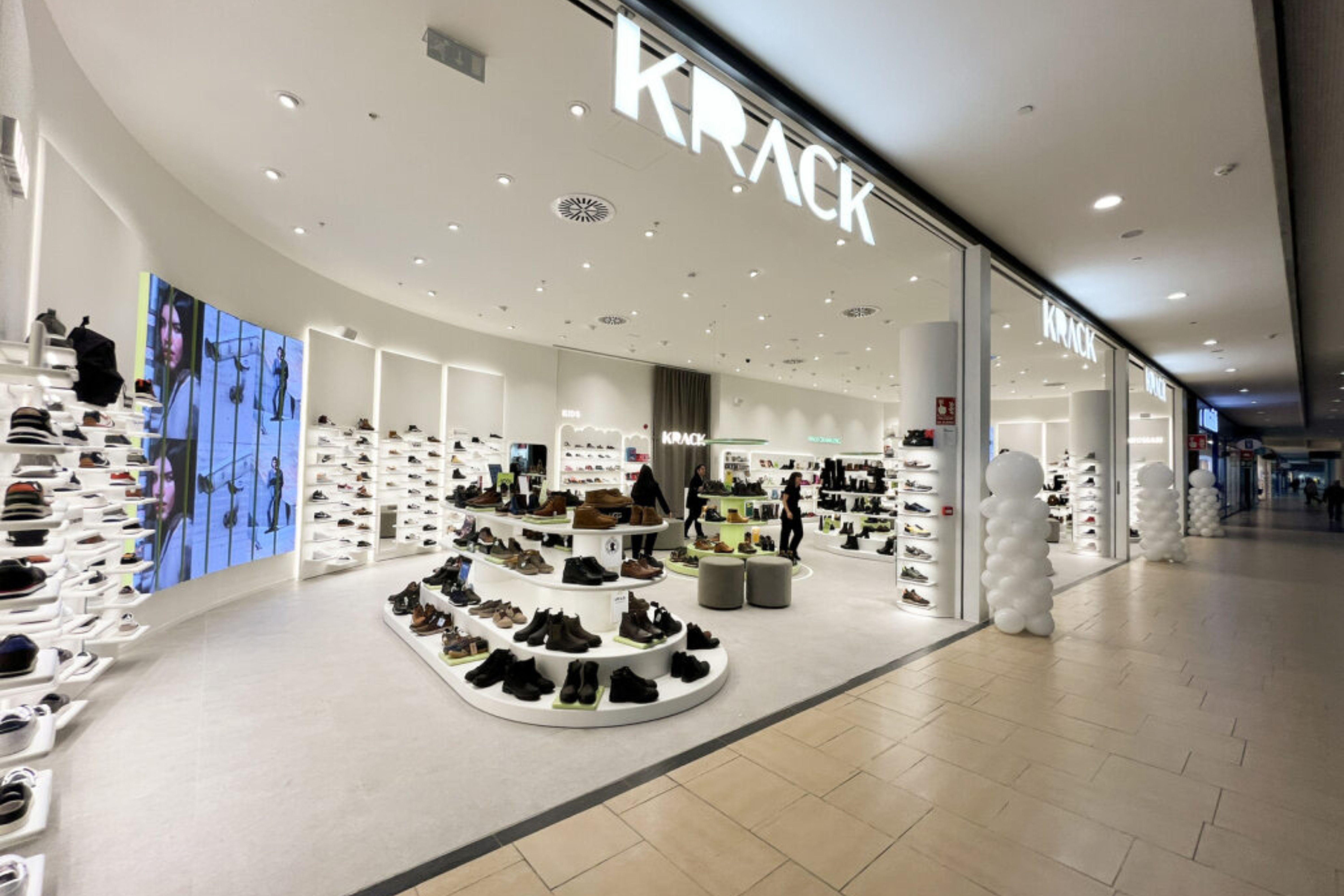
Latest information

Krack, digital transformation as a lever for competitiveness
Krack was born in 1990, when Juan Carlos Fontán and his brother Manuel decided to open a shoe store in Pontevedra under a main idea: to offer a wide variety of footwear in a single space. But what began as a traditional physical shoe store grew little by little, more stores were opened in different cities of Galicia and the business was given a greater structure, both in terms of personnel and business approach. After the initial success and good results, in 2005 a diversification of the business was made, acquiring the franchises of the Italian firm Geox and later of the English firm Clarks. It was in 2012, when Krack was already present in the main Galician cities and in several points of Spain, when they made the leap to ecommerce, which undoubtedly marked a before and after in the company's trajectory. "What pushed us to do it was the market. Ecommerce was beginning to be a strong sales channel in Spain and we wanted Krack to be present in it to be able to reach more customers and to be able to provide service also in places where we were not physically present," explains Sebastián Troyas, head of marketing and communication.
In just over 30 years since its founding, the figures speak for themselves. In 2022 Krack had a turnover of around 34 million euros and a staff of 256 people. They currently have 62 physical stores in Spain and Andorra. In digital, they have the Krack website in Spain, Germany, Portugal and France, a Zapaterías Miniprecios website in Spain and are present in 7 different marketplaces such as Amazon, Spartoo and Zalando, among others, with which they reach the main European cities.
Today, online represents between 13% and 15% of its total business. However, the key to success in its strategy is the so-called omnichannel, or in other words, unifying and offering a coherent user experience that integrates physical and virtual shopping, adapting to their consumption habits. "Marketing campaigns are thought omnichannel from the start and, regardless of the idea, this is adapted to the different channels and formats. As for the commercial strategy, thanks to our Shop & Go, a customer from any of our stores has access to the company's entire catalog and can buy a product and choose between picking it up at the store where it was purchased, receiving it at home or even at another store," Troyas explains.
In all this, logistics and transportation are also essential "to ensure that the product is in our stores as quickly as possible and available to our customers in all sales channels. The effectiveness of our supply chain depends on efficient logistics and transportation. This enables us to reduce costs, shorten delivery times and optimize inventory levels in our stores and warehouses," he explains.
Pioneers in marketing
Along with innovation and digitalization, another of the levers of success has been the conception of its marketing strategy. "Krack's philosophy is to always be trying new things without prejudice," explains its manager, Sebastián Troyas. "The budget we work with is very low, something that is a priori negative, but at the same time positive, as it makes us develop our creativity to the maximum to generate low-cost ideas, look for synergies and low-cost strategies with high results".
In fact, in 2012, coinciding with the opening of their online store, they pioneered the creation of capsule collections with influencers. "Today almost all brands have collaborations of this type. In our case what we have always sought is to offer them different, attractive projects and seek long-term relationships. The perfect example is Dulceida, one of the most relevant influencers in Europe. She started designing capsule collections for Krack in 2013 and today we continue to work together and every year with better results".
A commitment to sustainability
The company's commitment to sustainability is embodied in the Krack 360 project with the aim of moving towards sustainable management of the company, focusing on the three fundamental pillars: people, planet and sustainable development or governance.
Firstly, "we seek to improve the well-being of the people who work in the company, promoting aspects such as work-life balance, internal promotion and continuous training. Externally, we collaborate in different initiatives with associations and NGOs with the aim of helping to reduce inequalities," explains Troyas.
In the environmental area, they have begun to investigate innovative solutions for footwear recycling and circular economy, one of the great challenges facing the sector today. In this area, they were one of the companies selected to take part in the European circular economy project C-Voucher, in which the Xunta participated through the Galician Innovation Agency. They also support emerging brands with a positive social impact, incorporating them into their offer.
The third pillar of governance is essential to reinforce their corporate and ethical culture and they are working on it through the creation of a code of ethics, which compiles their values, responsibilities and commitments as a company.
Currently, after launching a rebranding of the brand, its main challenge is to reinforce its values and positioning, both internally and externally, as well as to continue growing and gaining market share, both in physical stores and ecommerce.